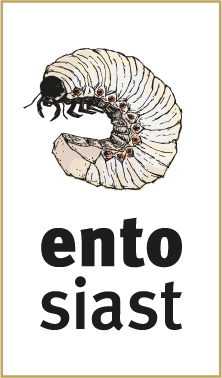2021 is considered a groundbreaking year for the European insect sector: The European Food Safety Authority EFSA gives green light for the first time to an insect species for human consumption and mealworms are officially approved as the first edible insect in the EU since June 2021.
This was followed shortly thereafter by further positive assessments - an overview.
For edible insect-producing companies, it is considered a milestone: on January 13, 2021, EFSA published its first risk assessment on an "insect-based food application." The EU agency classified yellow mealworms, the larval stages of the mealworm beetle (Tenebrio molitor), as a safe novel food - whole dried mealworms as well as in powdered mealworm meal. The decision followed a 2018 application by French company Agronutris, and led to the first official approval of a food insect in the EU in June 2021.
After more than three years, EFSA has classified yellow mealworms as safe under the conditions of use proposed by the applicant company. At the same time, the authority points out that for people who are allergic to crustaceans, mites or mollusks, eating insects also poses a corresponding risk.
The first risk assessment by EFSA is considered a crucial and necessary step for the assessment and regulation of insect-based foods in Europe. The analysis and testing was correspondingly thorough and detailed. The results of the investigation help political decision-makers to make knowledge-based judgments in further applications - always in the interest of consumer safety.
Currently three insect species officially approved as edible insects
In the summer of 2021, EFSA published its positive safety assessments for European migratory locusts (Locusta migratoria) and house crickets (Acheta domesticus):
Consumption of these two insect species is also considered safe for human health according to the proposed use, in frozen, dried and ground state. There is also the indication of possible allergic reactions in the mentioned group of people.
Following the recommendations of the EFSA, the approval for migratory locusts followed in December 2021 and in February 2022 also the approval for house crickets as edible insects in the EU.
Sources:
- Official website of EFSA (European Food Safety Authority):
- Edible insects: the science of novel food evaluations. https://www.efsa.europa.eu/en/news/edible-insects-science-novel-food-evaluations
- Safety of frozen and dried formulations from migratory locust (Locusta migratoria) as a Novel food pursuant to Regulation (EU) 2015/2283. https://www.efsa.europa.eu/en/efsajournal/pub/6667
- Safety of frozen and dried formulations from whole house crickets (Acheta domesticus) as a Novel food pursuant to Regulation (EU) 2015/2283. https://www.efsa.europa.eu/en/efsajournal/pub/6779
- Foote, EURACTIV.com: Heute gibt’s Mehlwurm: Grünes EFSA-Licht für Lebensmittel auf Insektenbasis. https://www.euractiv.de/section/gesundheit-und-verbraucherschutz/news/heute-gibts-mehlwurm-gruenes-licht-fuer-lebensmittel-auf-insektenbasis/
- Bundeszentrum für Ernährung: Essbare Insekten: Vom Exoten auf dem Weg zur alltäglichen Kost? https://www.bzfe.de/lebensmittel/trendlebensmittel/insekten/



